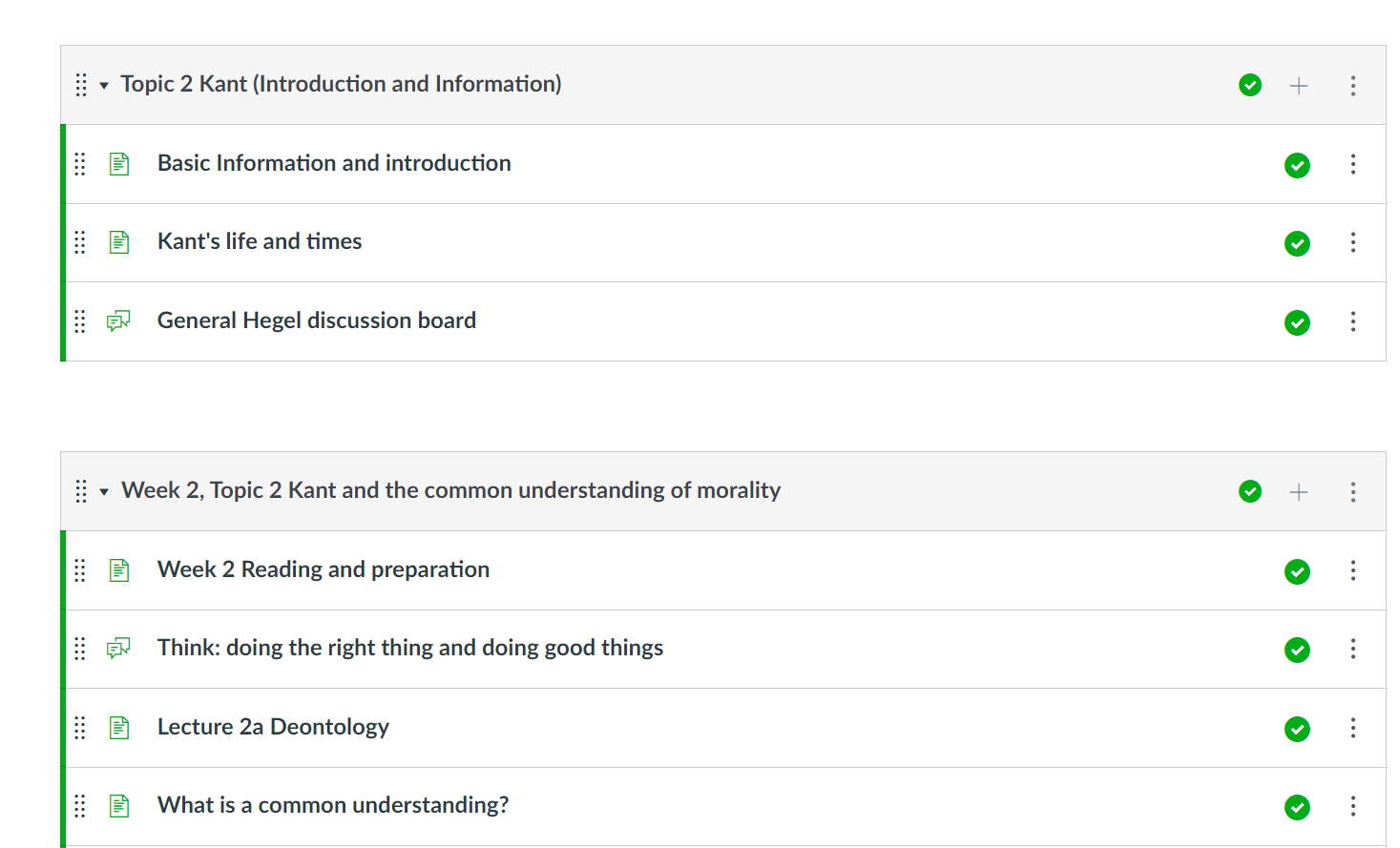David Rose, Professor of Social Ethics
Philosophy
Faculty of Humanities and Social Sciences
What did you do?
Moved our traditional mode of delivery, of 1 hour of lectures and 1 hour of seminars a week, online. We used Zoom for seminars and thought carefully about how lecture content could be delivered using online learning materials, making the most of the opportunities online delivery brings.
I also focussed on the structure and layout of the modules in Canvas to make sure students could navigate successfully through the materials.
Thinking about the opportunities blended learning offers
Structuring the modules in a participatory way
Using the Presentation-Practice-Production model to develop content
Who is involved?
David Rose
2nd and 3rd year undergraduate students
How did you do it?
The approach I took focussed on:
- Looking at new ways of breaking up the materials and not expecting students to watch a 1 hour lecture online.
- Making the most of not being tied to a linear model, which lectures follow.
- Exploring the opportunities of online learning by introducing different types of videos. Some are more traditional where I talk through concepts and ideas. Others focus on the close reading of a text where I make the most of using video by encouraging the students to pause the video to read parts of the text in depth. This has been really positive and I’m now at the point of thinking about how I make sure I keep this going when we return to lectures.
- Using the functionality that Canvas offers by using pages. These means that you don’t have to take a filing system approach to organising your modules.

Example of the structure of a Philosophy module in Canvas
- I also produced a Introductory video for students explaining the different approach that we would be taking this year and encouraging feedback so that I could adapt this approach if needed.
Video introduction for students
Does it work?
There has been some feedback passed to me from our student/staff committee that students like the structure and clarity of the module and the key videos dealing with concepts. A lot of the positive comments I hear relate to the organisation of the module.
Graduate Framework
This approach develops the following skills and attributes:
- Curious
- Critical Thinking
- Engaged
Colleagues can find out more about the Graduate Framework on the University intranet.
